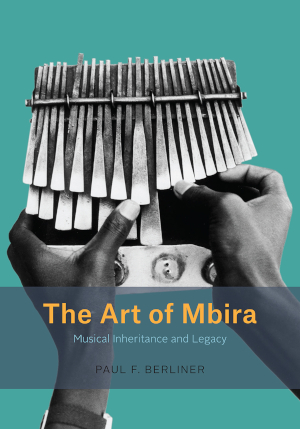First published in Songlines Magazine issue 167, May 2021.
Paul F. Berliner
The Art of Mbira: Musical Inheritance and Legacy
The University of Chicago Press (608 pages)
At its heart, this book began in 1971, when Paul Berliner first met mbira player Cosmas Magaya and started a life-long friendship. Such a long-standing relationship gives Berliner and Magaya insights into the mbira that can only have developed through decades of deep thought, matured through constant conversation and mediation. Berliner uses Magaya’s performances to explain the intricacies of mbira playing: how pieces are composed and evolve over time; how the rhythms, harmonies, melodies and texture work together to create a complex and unique musical style; how players vary, improvise, create and recreate mbira pieces and parts; and how the tradition is taught and learnt. Magaya’s presence here is all-encompassing and indelible, arguably deserving a co-author’s credit. His death in July 2020, just months after publication, adds a poignancy to his quote in the book’s introduction: ‘Once we’ve completed this study on behalf of our late mbira-playing comrades – leaving it for others who come behind us – I will know that if I die tomorrow, I can go to my grave satisfied.’
This book really is a monster tome, with over 600 (large) pages and 300 musical examples – and on top of that, there’s a whole website with hundreds of recordings cross-referenced with the text, and an even larger companion book, Mbira’s Restless Dance (912 pages!), with over 500 transcriptions of mbira music. It’s a multimedia magnum opus, and it’s a lot to get through.
The Art of Mbira is a landmark work that will be indispensable for scholars of mbira, Zimbabwean music, music pedagogy, music psychology and for ethnomusicologists and musicologists alike; it will also be a boon to budding mbira players. It’s worth bearing in mind though: this isn’t a book for light reading. It can get very technical and, although Berliner has a knack for evocative description, the academic discussion can be dry verging on impassable. This is an incredible book, and the culmination of two lifetimes of work, but proceed with caution.
